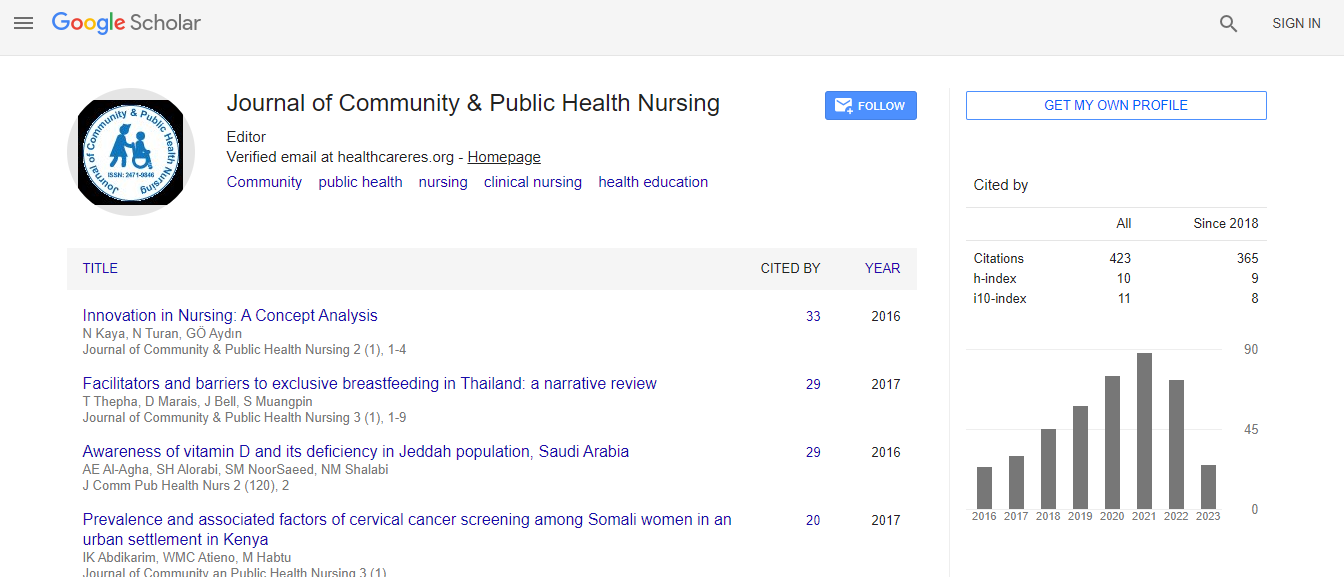Short Communication
Good Work is Good for Health: The Societal and Individual Perspective
Claire Holmes1 and Karen Walker-Bone2,3*1Rheumatology Department, Royal Hampshire County Hospital, UK
2Arthritis Research UK/MRC Centre for Musculoskeletal Health and Work, Southampton, UK
3MRC Lifecourse Epidemiology Unit, Southampton General Hospital, UK
- Corresponding Author:
- Karen Walker-Bone
BM, FRCP, PhD, Hon FFOM
Professor and Honorary Consultant, Department of Occupational Rheumatology
Medical Research Council Lifecourse Epidemiology Unit, University of Southampton
Southampton General Hospital, Southampton SO16 6YD, UK
Tel: (023) 80777624
Fax: (023) 80704021
E-mail: kwb@mrc.soton.ac.uk
Received date: July 19, 2017; Accepted date: July 21, 2017; Published date: July 28, 2017
Citation: Holmes C, Walker-Bone K (2017) Good Work is Good for Health: The Societal and Individual Perspective. J Comm Pub Health Nurs 3:189. doi:10.4172/2471-9846.1000189
Copyright: © 2017 Holmes C, et al. This is an open-access article distributed under the terms of the Creative Commons Attribution License, which permits unrestricted use, distribution and reproduction in any medium, provided the original author and source are credited.
Abstract
Background: Neither public health nor traditional healthcare have generally concerned themselves with employment participation. Most of the outcomes we measure are health-related and in practice we rarely take note of the occupation of our patients or populations or consider the impact of our healthcare on their ability to work.
Methods: We report the results of a study of current clinical practice involving patients receiving outpatient care for chronic long-term conditions.
Results: Healthcare workers do not take their opportunities to discuss work participation with their patients.
Conclusion: Work participation needs more emphasis by healthcare commissioners and providers. The optimal way to achieve this would be for work participation to become a health outcome. Prioritisation of work would lead to important improvements in the health of individuals and societies.

 Spanish
Spanish  Chinese
Chinese  Russian
Russian  German
German  French
French  Japanese
Japanese  Portuguese
Portuguese  Hindi
Hindi 
